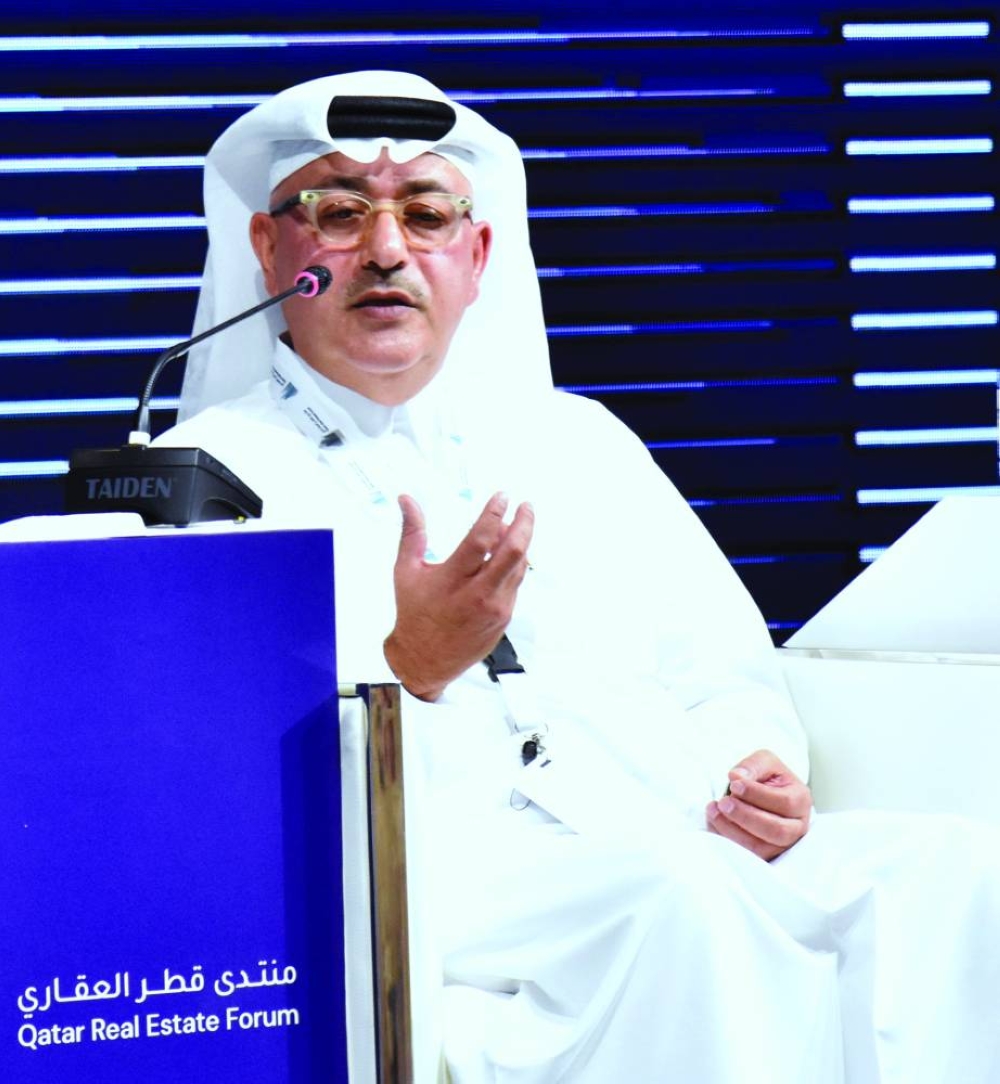Qatar's architectural landscape is undergoing a transformative phase, blending traditional knowledge and designs with advanced technologies to create a sustainable future, noted Qatari architect Ibrahim Mohamed Jaidah has said.
Speaking to Gulf Times, Jaidah, also the Group CEO of Arab Engineering Bureau (AEB), shared his insights on the architectural revolution that is underway, sustainability, and the immense tourism potential in Qatar and the region.
He highlighted the architectural transformation in Qatar, drawing attention to the nation's remarkable achievements. The designs of the FIFA World Cup Qatar 2022, for which he served as a designer, stood out as shining examples of sustainability, he stressed.
Jaidah said the stadiums have effectively conserved energy and reduced water consumption by 20 to 25% while recycled water is utilised for irrigation purposes as well.
He pointed out that sustainability has transitioned from being a luxury to a legal obligation, particularly for government projects, with all developments in Lusail mandated to follow sustainable practices.
“We're definitely making use (of it) and in our future cities because sustainability was a luxury in the past, now it's a legislation. If you’re designing a government project, it is by law you have to do it.
“All the projects in Lusail are sustainable by law so I think the future of our city is happening as we speak and we see a very much more sustainable Doha or greater Qatar for our buildings and societies,” Jaidah said.
About the sustainability of old buildings compared to the modern ones, he recognised the wisdom and expertise of Qatar’s ancestors who successfully adapted to Qatar’s environment long before the advent of modern amenities.
Jaidah emphasised the need to revisit the basics of sustainable design without implying to replicate historical structures, but rather incorporating some elements such as orientation and appropriate sizes of openings.
“I think our ancestors, they had to live in this environment before we had electricity and running water so there is a talk that I usually give to the college students, School of Architecture, that go back to basics... there is so much to learn from how our ancestors who managed to live in this harsh environment.
“If we go back to basics, I'm not saying build your houses to look like Souq Waqif or... no. But there are elements... doing glass box is not sustainable in our environment, this might fit somewhere in North Europe but not here, so learning from the past, I think we can definitely make more sustainable buildings and environment in our society,” he said.
Jaidah also shared his views on the future of Qatar’s tourism industry, saying that he envisions a prosperous era, especially with a surge in the number of visitors following the FIFA World Cup.
He said that several hotels have already been built in the country and many more are in the design phase, in addition to the millions of travelers being flown by Qatar Airways and passing through its airports.
Such a trend, Jaidah added, sets the stage for a thriving tourism sector as he underscored the economic benefits and employment opportunities generated by tourism, as well as its ability to showcase Qatar's rich culture and heritage to a global audience.
“The beauty of tourism is it creates a good economy, it employs a lot of people and it invites a lot of people to come and visit, and see your culture and your country,” he added.

Noted Qatari architect Ibrahim Mohamed Jaidah at the recent Qatar Real Estate Forum. PICTURE: Thajudheen

